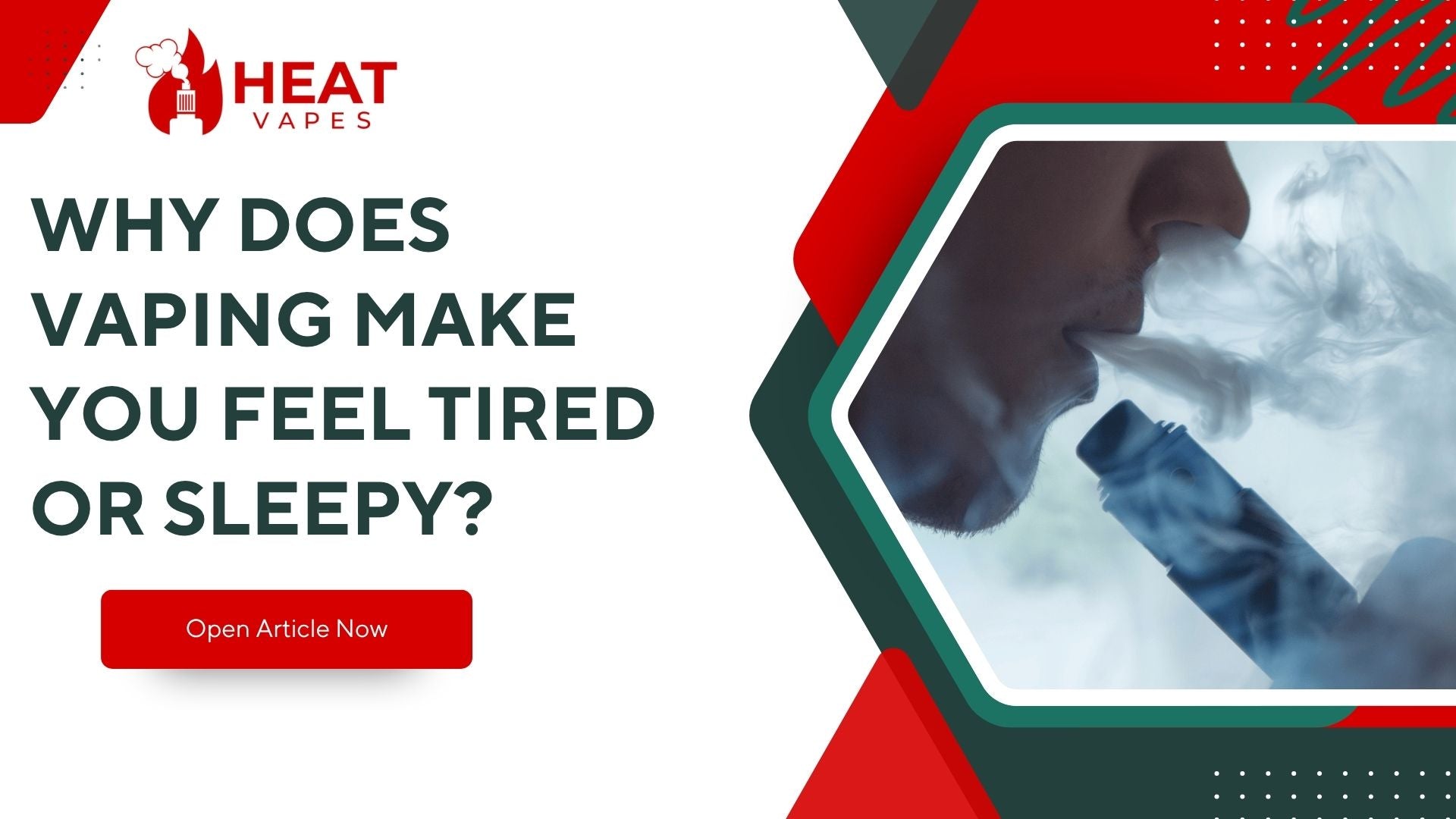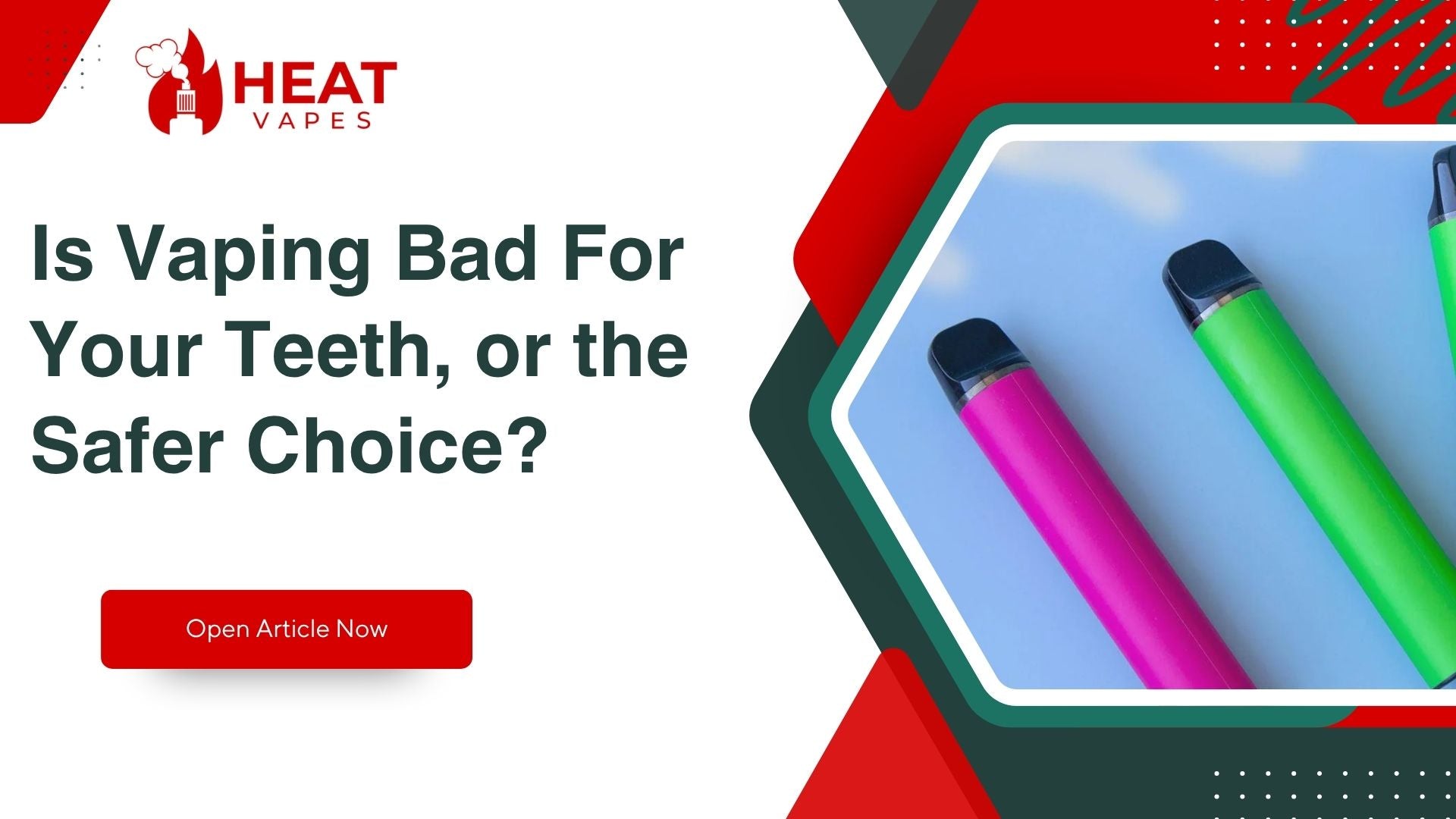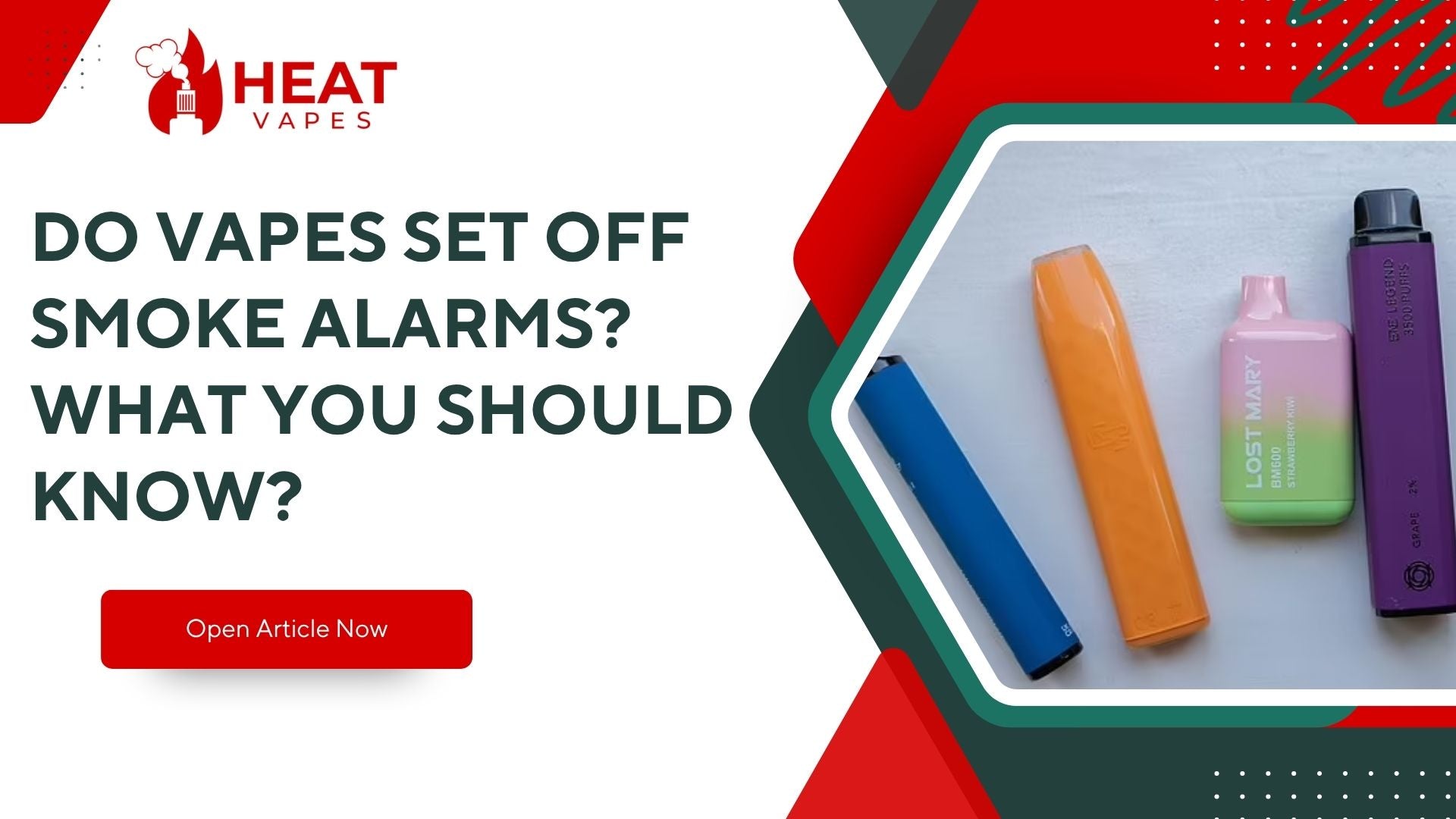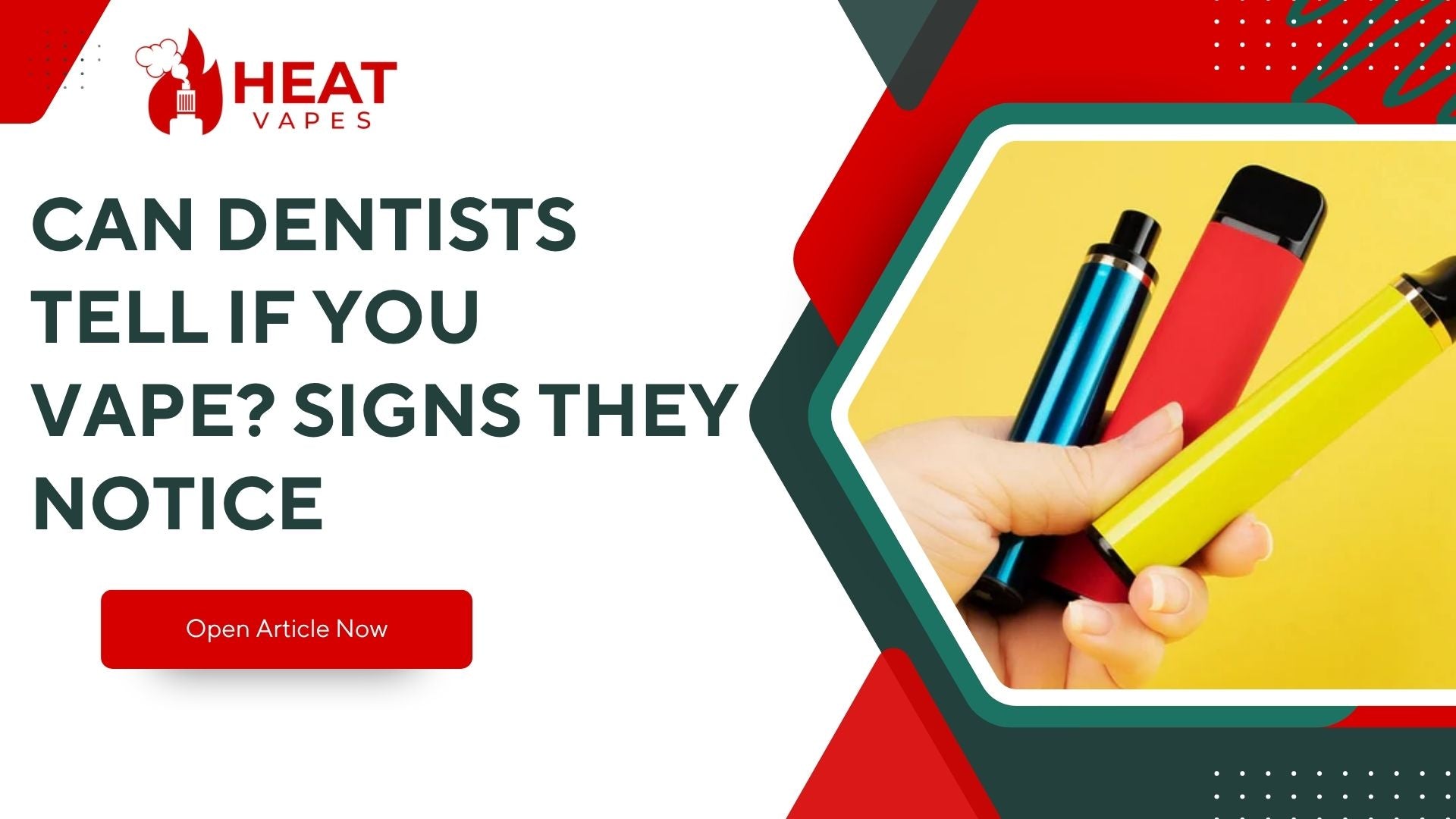
Let’s be real—one of the first things people ask when they pick up vaping is, “Is Vaping Bad For Your Teeth?” It makes sense. Nobody wants to trade yellow stains, bad breath, and trips to the dentist for something just as bad. The truth? Vaping isn’t perfect, but compared to smoking, it’s like night and day.
Cigarettes thrash your mouth, gums, and everything in between. Vaping, while not risk-free, is usually a far gentler option. But let’s not sugarcoat it—there are still things worth knowing before you puff away thinking it’s totally harmless.
Cigarettes and Your Mouth: A Rough Love Story
If you’ve smoked for years, you already know what they do to your mouth. Cigarettes carry over 4,000 chemicals, and when that smoke hits your gums and cheeks, it’s like setting off tiny chemical bombs.
The heat alone is nasty—your gums are basically under a constant grill. Inflammation never gets a chance to calm down, and sooner or later, gum disease sets in. On top of that, tar sticks to your teeth like glue, giving bacteria a cosy playground.
That’s why smokers deal with cavities, receding gums, and breath that just doesn’t go away. And healing? Forget it. Smokers take longer to bounce back from even small dental procedures. Blood flow is reduced, tissues struggle to repair, and many end up losing teeth entirely.
Vaping Flips the Script
Now, here’s where vaping changes the game. Instead of fire, you’ve got heat. Instead of smoke, you’ve got vapor. No combustion, no tar, no carbon monoxide. Just a liquid that’s warmed into a mist.
Most vape juices are made up of four main ingredients: propylene glycol, vegetable glycerin, flavorings, and nicotine (if you use it). Compare that with thousands of chemicals in smoke—it’s almost laughable.
So one pro about Is Vaping Bad For Your Teeth is that vapor runs cooler than cigarette smoke, your mouth isn’t constantly roasted. For gums and soft tissues, that alone is a big relief.
The Dry Mouth Thing Nobody Talks About
Of course, vaping isn’t completely angelic. A lot of folks notice their mouth gets drier. That’s thanks to propylene glycol—it absorbs moisture, and suddenly your saliva isn’t flowing like it used to.
Saliva is underrated, by the way. It washes out bacteria, balances acids, and keeps everything ticking. So when it drops, bacteria can get cheeky.
The trick? Hydrate. Drink more water, chew sugar-free gum, maybe suck on some ice chips. For most, the dryness fades as the body adjusts, but it’s something to be aware of.
Signs Your Gums Are Breathing Again
One of the most encouraging things people notice about Is Vaping Bad For Your Teeth after switching: their gums start to look alive again. That pale, grayish color? It fades. Bleeding when brushing? It eases up.
Dentists can literally tell when a smoker has made the switch because the gums look healthier and less inflamed. Some patients see such a turnaround that dentists end up asking, “So, what changed?”
Sweet Flavors Don’t Equal Sweet Teeth
Here’s a myth worth busting on Is Vaping Bad For Your Teeth if flavor is sweet?: fruity or dessert vape juices don’t mean automatic cavities. Unlike sweets, most e-liquids don’t actually contain sugar. Those flavors are usually from artificial compounds that bacteria can’t digest.
And unlike a lollipop that sticks to your molars for an hour, vapor passes through fast. Nothing is clinging to enamel the way real sugar does. Of course, if you’re buying cheap liquids from shady sellers, all bets are off—so stick with brands that list ingredients properly.
What About Nicotine?
Nicotine isn’t completely innocent. It can restrict blood flow to your gums, making healing slower. But here’s the kicker: smoking delivers nicotine plus thousands of other poisons. Vaping delivers nicotine without that toxic parade.
Plenty of vapers also taper down over time. Start high if cravings are strong, then step down gradually. Some even end up going nicotine-free, keeping the hand-to-mouth habit without the chemical baggage.
Dentists Weigh In
Dentists will tell you straight: if you want the absolute healthiest mouth, avoid both smoking and vaping. But in the real world, when a smoker switches to vaping, the difference is noticeable.
They see less aggressive gum disease. Fewer cases of rapid tooth loss. Better healing after cleanings and extractions. For patients who can’t quit nicotine entirely, vaping often makes treatment outcomes far more manageable.
The Long-Term Picture
Cigarettes have decades of research proving they wreck mouths—periodontal disease, tooth loss, oral cancer. Vaping hasn’t been around long enough to have the same pile of data, but what we do know so far? The risks look much, much lower.
By cutting out combustion, you’re removing the main offenders behind the most brutal damage smoking causes. Is vaping risk-free? No. But is it miles better than a pack-a-day smoking habit? All signs point to yes.
Everyday Changes People Notice
Ask someone who’s swapped cigarettes for vaping, and you’ll hear stuff like:
-
“My breath doesn’t stink anymore.”
-
“Food actually tastes like food again.”
-
“My teeth aren’t as yellow as they used to be.”
These aren’t subtle shifts—they’re the kind of improvements you feel daily. Even morning breath lightens up when you’re not coating your mouth in smoke every night.
Don’t Skip the Basics
None of this means you can slack on dental care. Brush twice a day with fluoride toothpaste, floss (yes, really), and drink plenty of water—especially if you’re still battling dry mouth. And please, keep your dentist appointments. They can spot small problems before they blow up into big ones.
Quality Matters
Not all vape juices are created equal. Stick to trusted brands that use pharma-grade ingredients. Bargain-bin liquids might save you a few pounds today, but if they’re hiding sugar or contaminants, your teeth will end up paying the bill.
Keeping It Real
So, let’s call it how it is: vaping isn’t a magic pass for your dental health. But if you’re comparing it to cigarettes, it’s the clear winner. For smokers, switching is often a game-changer. For non-smokers, the best advice is still don’t start in the first place.
The Transition Period
If you do make the jump from cigarettes to vaping, brace yourself for quick wins: fresher breath in days, gums that look healthier in weeks, and stains that slowly fade. Dry mouth might hang around at first, but water helps a ton.
Most people are shocked at how much better their mouth feels once smoke is out of the picture.
Is Vaping Bad for Your Teeth? What Dentists Say
The vaping world has exploded in the last decade. Everywhere you go—from small corner shops to high street stores—you’ll find people puffing on sleek little devices instead of cigarettes.
For many, it feels like a healthier swap. No smoke, no ash, and far less of that suffocating smell that clings to everything. But once the excitement settles, a real question pops up in people’s heads: Is Vaping Bad For Your Teeth?
Dentists across the UK and beyond have been seeing more patients who vape, and their answers aren’t always black and white. Vaping doesn’t attack your mouth in the same brutal way smoking does, but that doesn’t mean it’s harmless either.
Why Teeth Take the Hit With Smoking
Before we dive into vaping, it’s worth remembering just how bad cigarettes are for your mouth. Smoke carries tar, toxins, and heat—all of which cling to enamel and gums. That’s why smokers almost always end up with:
-
Yellow or brown stained teeth
-
Persistent bad breath
-
Gum disease at higher rates
-
Tooth loss far earlier than non-smokers
Basically, every puff of smoke leaves behind layers that brush and rinse won’t fully fix. Dentists spend years treating smoker’s mouth, and trust us—they’re not exaggerating when they say smoking is devastating for oral health.
How Vaping Differs From Smoking
Here’s the key difference: no combustion. Vapes heat liquid into vapour instead of burning tobacco. That alone removes a massive portion of the chemicals responsible for severe staining and gum damage. Dentists agree that vaping doesn’t cause the same level of tar build-up.
But—and this is where people misunderstand—vaping isn’t just flavoured air. That cloud you exhale contains nicotine, flavourings, and additives that your teeth and gums still interact with. It may be a gentler option, but it still has an effect.
Nicotine’s Impact on Oral Health
Dentists have a love-hate relationship with nicotine. They understand people use it to move away from smoking, but they also know how it behaves inside the mouth.
-
Staining: When nicotine oxidises, it turns yellow and seeps into tiny pores of enamel. Even without tar, long-term vapers can notice discolouration.
-
Reduced blood flow: Nicotine constricts blood vessels, which slows healing in the gums. That means small irritations or cuts take longer to repair.
-
Dry mouth: Nicotine often reduces saliva, and saliva is your mouth’s built-in cleaner. Without it, bacteria thrive, and stains cling.
So while vapers dodge tar, they can’t dodge nicotine’s subtle effects if they’re using liquids with it.
What About Nicotine-Free Vaping?
This is where dentists usually pause. Nicotine-free liquids take away one of the biggest culprits. Without nicotine, staining drops drastically, gum healing improves, and saliva production stays healthier.
That doesn’t mean it’s a free pass though. Flavourings and sweeteners in e-liquids can still coat enamel. Sticky or dark juices act like fizzy drinks or coffee—fine in moderation, but constant exposure adds risk.
Flavourings and Sugar-Like Additives
When dentists look at vape-related issues, one recurring theme is plaque build-up. Sweet or sticky liquids feed bacteria in the same way sugary snacks do. That’s why dentists sometimes compare dessert-flavoured vapes to sipping cola throughout the day.
-
Fruity and sweet vapes → higher risk of plaque if you skip brushing.
-
Darker liquids (coffee, caramel, cola flavours) → more noticeable dullness on enamel.
-
Menthol or clear juices → less likely to leave visible residue, but still not entirely neutral.
So yes, flavours matter more than most vapers realise.
The Dry Mouth Problem
Many dentists highlight dry mouth as vaping’s most common side effect. That vapour cloud might feel smooth, but it dehydrates. Less saliva means less rinsing, which leads to:
-
Stronger chance of bad breath
-
Faster plaque formation
-
A dull coating that encourages staining
Some vapers even report waking up with their mouth feeling like sandpaper. For dentists, that’s a red flag because saliva isn’t just for comfort—it’s protection.
What Dentists Are Actually Seeing
When you talk to dentists who deal with vapers daily, their reports are surprisingly consistent. They’re not seeing the same catastrophic damage they saw with smokers, but they are spotting patterns:
-
Mild to moderate staining, especially in long-term vapers using high nicotine.
-
More plaque buildup in those who favour sweet or sticky flavours.
-
Higher reports of gum irritation in patients who don’t hydrate enough.
-
Occasional cavities in heavy dessert-juice users.
In short: vaping is better than smoking, but not invisible on dental charts.
How to Protect Your Teeth if You Vape
Dentists aren’t out to shame vapers—they just want people to be smarter about it. Most advice lines up with good oral care habits, but with a few extra tweaks:
-
Brush twice a day, properly. No shortcuts.
-
Rinse after vaping. Even plain water helps wash residue away.
-
Stay hydrated. Keep saliva flowing.
-
Go for lower nicotine. Less staining, less dryness.
-
Switch flavours occasionally. Constant sticky-sweet liquids are rough on enamel.
-
Don’t miss dentist visits. A scale and polish can clear early stains fast.
These steps won’t cancel vaping’s effects completely, but they’ll stop minor issues from becoming major ones.
Whitening and Recovery
If staining already shows up, dentists usually reassure vapers: it’s manageable. Because there’s no tar, vape stains sit on the surface, making whitening toothpaste, strips, or in-clinic polishing far more effective.
Smokers often need repeated sessions, while vapers usually see quicker results. So, if your smile looks dull after switching, don’t panic—it’s reversible with effort.
Our Take at Heat Vapes
At Heat Vapes, based in Manchester, we’ve always said vaping isn’t about pretending it’s flawless—it’s about finding smarter alternatives. We work with trusted wholesale suppliers to bring reliable products to the UK market, but we also believe in honest conversations.
If dentists say vaping can dry out your mouth or dull your teeth, we think people deserve to hear that upfront. Because when customers are informed, they’re not just buying a vape—they’re making choices about their health, their lifestyle, and yes, their smile.
The Bottom Line From Dentists
Dentists don’t call vaping harmless, but almost all agree it’s less damaging than smoking when it comes to oral health. The main risks lie in nicotine staining, flavour residue, and dry mouth. None of these are as extreme as cigarettes, but they still matter if you want to keep your smile bright.
Their final word usually sounds like this: “If you’ve quit smoking for vaping, your teeth are already thanking you. But don’t assume it’s risk-free. Brush, rinse, and see us regularly—your smile will last longer.”
Conclusion
To sum up is vaping bad for your teeth? Vaping isn’t perfect—but when it comes to your teeth and gums, it’s a whole lot kinder than smoking. Your best bet will always be good oral hygiene, regular check-ups, and being picky about the products you use.
At the end of the day, your smile is worth protecting. Whether you vape or not, looking after your mouth pays off for years to come.











